home > articles > biographical > What The Life of Moses Means For Today
 The Biblical account of the life of Moses is one of the most prominent in the Scriptures. His life, his work, and his impact is unparalleled in the Old Testament. There is much encouragement to be drawn from the life of Moses for the believer today because he was someone who met God, felt disappointed with God, let God down, but became known as the friend of God who was privileged to talk with God face-to-face.
The Biblical account of the life of Moses is one of the most prominent in the Scriptures. His life, his work, and his impact is unparalleled in the Old Testament. There is much encouragement to be drawn from the life of Moses for the believer today because he was someone who met God, felt disappointed with God, let God down, but became known as the friend of God who was privileged to talk with God face-to-face.
Moses had failed. In Stephen’s words, he had “supposed” (NLT=”assumed“) that the Hebrews knew he was to be their deliverer (Acts 7:25) when he murdered an Egyptian. But instead, the Hebrews had scoffed at his pretense of being their deliverer. Dejected and rejected he retreated. Moses had jeopardised the redemptive plan of God by his mis-timed murderous outburst. His forty years in the wilderness was a time of going some way to validating the defective proverb- time heals all wounds.
Then the LORD said to Abram, “Know for certain that your offspring will be sojourners in a land that is not theirs and will be servants there, and they will be afflicted for four hundred years.”
Genesis 15:13
The circumstances facing Israel were foretold hundreds of years before it happened. Not only were they foretold, their duration was also foretold: 400 years. But when Israel finally was delivered, Scripture notes-
The time that the people of Israel lived in Egypt was 430 years.
Exodus 12:40
This is not a discrepancy. These are two statements. The first is prophetic. The second is historic. Both describe the same event. One before it happened, the other after it happened. Yet there is a difference of thirty years which the student of the Bible might expect not to be there. But it is. And perhaps it stands as a largely unnoticed evidence of the Bible’s divine rather than human inspiration. For, if the Bible was human in origin, a human author would have aligned these two passages to agree precisely. The fact that they don’t indicates that a deliberate statement is being made.
A CONFLICT BETWEEN GOD’S SOVEREIGNTY & MAN’S FREEDOM?
The Scriptures seem to present a tension between God’s sovereign will and man’s free will. God is the author of everything, including human actions and responses. But man is able to act and respond. Job declared that nothing could thwart the purposes and plans of God from being fulfilled. We can not merely diminish this divine sovereignty to God’s foresight and fore-knowledge. God really is sovereign. In fact, that seems to be the singular point of the Plagues and Exodus from Egypt- “that they may know that I am the LORD“. In this sense, God hardened Pharaoh’s heart. But God invites people to freely respond.
Moses knew that God had called him. He actually assumed that his fellow Hebrews knew this as well. They may have. But the ones he defended didn’t accept it. It is reasonable to wonder whether Moses pre-empted God’s timing by ten years. The reason for wondering this is that Moses murdered the Egyptian after Israel had been in Egypt for 390 years since forty years after this time Exodus 12:30 states that it had been 430 years of bondage. This examination of the intersection between prophecy and history possibly reveals a wonderful theological insight that beautifully paints the relationship between God’s sovereignty and man’s free will. It was perhaps God’s plan for Moses to be further groomed for another ten years before He used Moses to redeem Israel. Some could argue that God’s sovereignty was undermined by what appears to be an incident outside of His control. But it is perhaps more apt to glory in God’s sovereignty by seeing that despite man’s attempts to rebel or derail God’s plan, God still triumphs! God was able to restore Moses back to His plan.
HOW GOD RESTORED MOSES
 Forty years after Moses had fled Egypt he was shepherding in the wilderness and moved his flock over to near Mount Horeb (Sinai). This mountain had curiously gained a reputation as “the mountain of God” (Exodus 3:1). Perhaps Moses had fled Egypt feeling that he had let God down. For forty years he lived with the constant memory of his failure and God’s certain disapproval. But something began to stir in Moses’ heart. He possibly longed to be reacquainted with God. This longing may have led him to wander nearer to the Mountain of God. For those of us who have let God down and walked away from His call on our lives and wandered a wilderness for decades, this episode in the life of Moses gives us hope! God wooed Moses back. His wooing climaxed with the burning bush (Exodus 3:2). It was at the burning bush that Moses met God. It was at the burning bush that Moses discovered God as LORD (YHWH).
Forty years after Moses had fled Egypt he was shepherding in the wilderness and moved his flock over to near Mount Horeb (Sinai). This mountain had curiously gained a reputation as “the mountain of God” (Exodus 3:1). Perhaps Moses had fled Egypt feeling that he had let God down. For forty years he lived with the constant memory of his failure and God’s certain disapproval. But something began to stir in Moses’ heart. He possibly longed to be reacquainted with God. This longing may have led him to wander nearer to the Mountain of God. For those of us who have let God down and walked away from His call on our lives and wandered a wilderness for decades, this episode in the life of Moses gives us hope! God wooed Moses back. His wooing climaxed with the burning bush (Exodus 3:2). It was at the burning bush that Moses met God. It was at the burning bush that Moses discovered God as LORD (YHWH).
God revealed to Moses that he had “heard the cry of His people” (Exodus 3:7). When we consider that Israel’s bondage had a 400 year history and that their deteriorated circumstances had been going on for decades, some Hebrews must have wondered whether God indeed had heard their cry or if He had whether He cared. This therefore reveals a God who was not only touched by injustice but deeply touched by compassion for His people. He told Moses that He was going to deliver Israel (Exodus 3:8). At hearing this, Moses may well have been excited, relieved, and in awe of God’s announcement and its implications. But then Moses’ heart may have sunk as God declared His unchanging principle of working through a person to achieve His purposes- especially since this was the divine destiny of Moses anyway!
“Now go, for I am sending you to Pharaoh. You will lead my people, the Israelites, out of Egypt.”
Exodus 3:10
God wants to use willing people for His purposes. But Moses expressed his utter inability to do what God was now asking him to do. He wasn’t saying “I won’t” he was saying “I can’t!” Wonderfully God accepted both Moses and the resources he brought to the task. In this case, all Moses could offer was a wooden rod. With this rod God showed Moses what He could do with it. In our desires to serve God and our feelings of utter inadequacy and insufficiency, it is comforting to know that one of the greatest men of God ever felt the same!
MOSES BEFORE PHARAOH

 Thanks to Cecil B. DeMille, we are now able to approach the book of Exodus knowing how it ends. But try for a moment to strip away all that we know about Moses’ dealings with Pharaoh and the resultant plagues. Look over the shoulder of Moses and consider what he heard God say He would do: I will deliver My people from Egypt. He knew that when he was to throw his rod down and have it change into a serpent it would only temporarily impress Pharaoh. God had said that Pharaoh would harden his heart. But it might have been reasonable for Moses to assume that this too would be temporary since God had said that Israel would be delivered.
Thanks to Cecil B. DeMille, we are now able to approach the book of Exodus knowing how it ends. But try for a moment to strip away all that we know about Moses’ dealings with Pharaoh and the resultant plagues. Look over the shoulder of Moses and consider what he heard God say He would do: I will deliver My people from Egypt. He knew that when he was to throw his rod down and have it change into a serpent it would only temporarily impress Pharaoh. God had said that Pharaoh would harden his heart. But it might have been reasonable for Moses to assume that this too would be temporary since God had said that Israel would be delivered.
 But things didn’t quite work out the way Moses may have thought they might. In fact, they went in exactly the other direction! Not only didn’t Pharaoh not let the Hebrews go, he ordered the taskmasters to intensify their cruelty and withdraw the necessary straw for the making of bricks. Rather than the Hebrews thanking Moses for attempting to free them, they criticised and despised him instead. Moses felt their pain. He went to God in prayer and enquired about this.
But things didn’t quite work out the way Moses may have thought they might. In fact, they went in exactly the other direction! Not only didn’t Pharaoh not let the Hebrews go, he ordered the taskmasters to intensify their cruelty and withdraw the necessary straw for the making of bricks. Rather than the Hebrews thanking Moses for attempting to free them, they criticised and despised him instead. Moses felt their pain. He went to God in prayer and enquired about this.
So Moses went back to the LORD and protested, “Why have you mistreated your own people like this, Lord? Why did you send me?”
Exodus 5:22 (NLT)

This is an amazing episode in the life of Moses. He pleaded with God for answers and got none. He was confused and bewildered. Even though he had clearly heard from God he now encountered a silent God. And like Job, his questions would remain unanswered. Exodus chapter 5 closes with no answer from God. This might sound like a shocking statement to make by claiming that sometimes God is silent and therefore there are times when there just are no answers to some of the adverse circumstances we face.
 But God’s silence wasn’t forever. It never is. His silence is a season not a sentence. Moses once again heard God. This is surprising (he attended no seminars on how to hear God!) because all he did was seek God and open his heart (his spiritual ears) to whatever God would say. But still God did not answer his questions, instead He simply recommenced commanding Moses into action.
But God’s silence wasn’t forever. It never is. His silence is a season not a sentence. Moses once again heard God. This is surprising (he attended no seminars on how to hear God!) because all he did was seek God and open his heart (his spiritual ears) to whatever God would say. But still God did not answer his questions, instead He simply recommenced commanding Moses into action.
 When Moses re-acquainted himself with the Hebrews he found them totally indifferent to him. They were “broken.”
When Moses re-acquainted himself with the Hebrews he found them totally indifferent to him. They were “broken.”
Moses spoke thus to the people of Israel, but they did not listen to Moses, because of their broken spirit and harsh slavery.
Exodus 6:9
I don’t know why God sometimes waits until it appears there is almost no hope. But I know that –
He rescues those who are crushed in spirit.
Psalm 34:18
He heals the brokenhearted, binding up their wounds.
Psalm 147:3
 Moses prayerfully points out this brokenness to God and God responds with a “charge” to action. Sympathy is great, but action is sometimes better. Moses is charged to once again confront Pharaoh with the divine demand. Then God does what appears to be a very strange thing: He reminds Moses of his past. Ravi Zacharias says that there is only one worst than nostalgia and that’s amnesia! It has always struck me as a strange thing that in this dramatic episode of bondage and deliverance that God would start talking about genealogies. But this seems to be a Biblical and divine pattern. When God wants to reassure His people about the future, He reminds them of their past. This genealogy goes back to Jacob and his sons- to whom the promise given to Abraham had been given. The promise was the Israel would be in servitude in Egypt for 400 years and then God would deliver them to the Promised Land.
Moses prayerfully points out this brokenness to God and God responds with a “charge” to action. Sympathy is great, but action is sometimes better. Moses is charged to once again confront Pharaoh with the divine demand. Then God does what appears to be a very strange thing: He reminds Moses of his past. Ravi Zacharias says that there is only one worst than nostalgia and that’s amnesia! It has always struck me as a strange thing that in this dramatic episode of bondage and deliverance that God would start talking about genealogies. But this seems to be a Biblical and divine pattern. When God wants to reassure His people about the future, He reminds them of their past. This genealogy goes back to Jacob and his sons- to whom the promise given to Abraham had been given. The promise was the Israel would be in servitude in Egypt for 400 years and then God would deliver them to the Promised Land.
History, said one of my Sunday School teachers, is His-Story. It is the evidence of the impact of the unseen God upon the affairs of mankind. This genealogical record comes right back to Moses. But now Moses was different to the person he was 40 years earlier. The brash, adopted grandson of the Pharaoh with a Messianic-complex, is now a broken, contrite, obedient servant of God who would later be described as-
Now the man Moses was very meek, more than all people who were on the face of the earth.
Numbers 12:3
While God was about the deliverance of Israel, He was also about the moulding of a man. It’s important for us to realise that the God of the whole earth who guides, directs, and exalts nations is also the same God who cares for you. He moves nations and He moulds a man. This is what we learn from the life of Moses.
Amen.
© Dr. Andrew Corbett, 22nd March 2007
-
Sale!
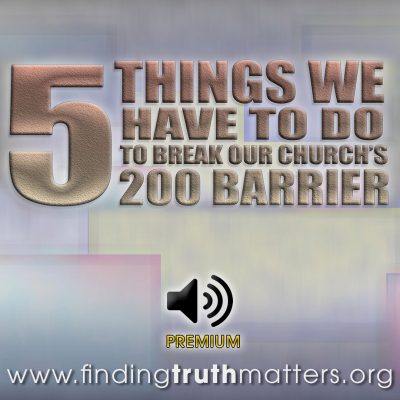
5 Things We Need To Do To Break Our Church’s 200 Barrier, Premium Audio
Original price was: $1.75.$0.95Current price is: $0.95. -
Sale!

A Morning With Izaak Walton – The Compleat Man, Premium Audio
Original price was: $1.75.$1.25Current price is: $1.25. -
Sale!
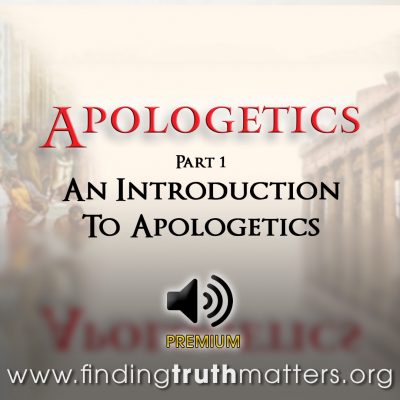
Apologetics Part 1 – Introduction To Apologetics, Premium Audio
Original price was: $1.75.$0.95Current price is: $0.95. -
Sale!
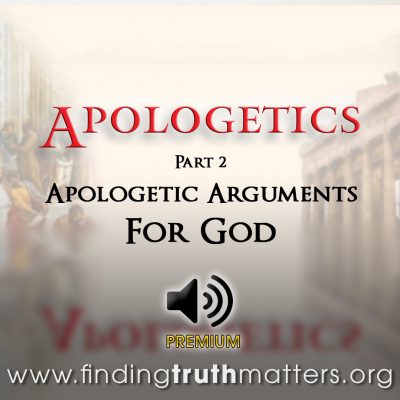
Apologetics Part 2 – The Apologetic Arguments For God, Premium Audio
Original price was: $1.75.$0.95Current price is: $0.95. -
Sale!
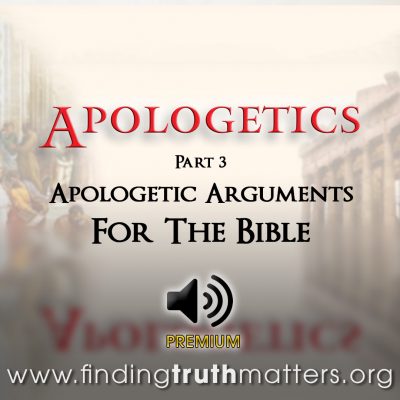
Apologetics Part 3 – The Apologetic Arguments For The Bible, Premium Audio
Original price was: $1.75.$0.95Current price is: $0.95. -
Sale!
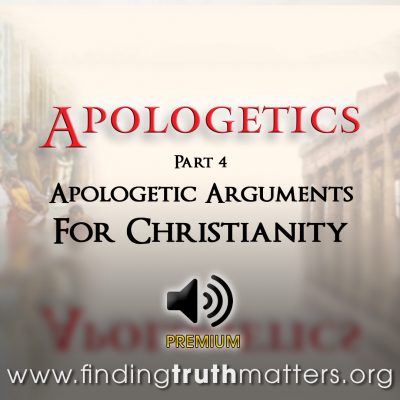
Apologetics Part 4 – The Apologetic Arguments For Christianity, Premium Audio
Original price was: $1.75.$0.95Current price is: $0.95.






































0 Comments